Episode 284 - Entrepreneur: Are You Caring for Your Team? with Stephen Phelan of Movement Mortgage
Do you ever feel like you're so fixated on what you're building next that you forget to look at the opportunities right in front of you?
Right now people around the world are looking for meaning, purpose, and value.
And many of them are searching for those things through their jobs.
So that means you, as a founder, have a chance to provide these people with the very thing they long for most.
In this episode, we talk to Stephen Phelan, the Chief Pastoral Officer of Movement Mortgage about the radical programs they have implemented to care for their employees.
Stephen has helped businesses all around the U.S. care meet the needs of their employees, and the best part is that these programs aren't out of reach or super expensive. In fact, throughout the conversation, Stephen shows just how realistic these are for any company, no matter how big or small your team is.
5 Key Takeaways:
Implementing programs like Love Works can have a significant impact on company culture and create a community where teammates feel loved and valued.
The Love Works program helps teammates in crisis and demonstrates the love and care of the company.
Mentoring processes can be implemented to further support and develop teammates.
Funding for programs like Love Works can be achieved through the support of teammates.
Overcoming barriers such as uncertainty and busyness is essential to implementing programs that care for and support teammates.
You can contact Stephen directly at Stephen.Phelan@movement.com.
You can also hear more about the work of Movement Mortgage in the first edition of a new podcast segment called “Stories of the Movement.” Listen to the episode here: https://www.faithdrivenentrepreneur.org/podcast-inventory/episode-283-stories-of-the-movement-the-2008-turnaround
If you enjoyed the show, please rate, follow, and share the episode.
All opinions expressed on this podcast, including the team and guests, are solely their opinions. Host and guests may maintain positions in the companies and securities discussed. This podcast is for informational purposes only and should not be relied upon as specific advice for any individual or organization.
Episode Transcript
Transcription is done by an AI software. While technology is an incredible tool to automate this process, there will be misspellings and typos that might accompany it. Please keep that in mind as you work through it.
Joseph Honescko: Do you ever feel like you're so fixated on what you're building next that you forget to look at the opportunities right in front of you? Right now, people around the world are looking for meaning and purpose and value, and many of them are searching for those things through their jobs. So that means you, as a founder, have a chance to provide these people with the very thing they long form most. And look, maybe you've felt this call before you've come out of a church service or a conference and you were so excited to make a difference for your team. But then reality hit and you started thinking, where's the money going to come from? How are we going to actually implement this new initiative? Quickly, you move past the opportunity and decide that it's just too complicated to get into right now. But what if it actually wasn't that complicated? Today we're talking to Stephen Phelan, the chief pastoral officer of Movement Mortgage. Their team has implemented some radical programs for their employees, and Stephen has helped businesses all around the US do the same. The best part is that these programs aren't out of reach or super expensive. In fact, in this episode, Stephen is going to show us how realistic these are for any company, no matter how big or small your team is. I'm Joey Honescko, and you're listening to the Faith Driven Entrepreneur podcast. Let's get into it. Welcome back to the Faith Driven Entrepreneur podcast. I'm here with my co-host Justin Forman, and we're recording this just days after the Super Bowl. And Justin, we've had some side conversation, and you seemed much more excited about that Dunkin Donuts commercial than you were about the game.
Justin Forman: How can you not be as a Lions fan that is heartbroken watching a terrible game happen in the first half, thinking we missed our moment. This was our once in a generational opportunity to win the Super Bowl. So no, I was not excited about the football game. I was excited about the ads wars and Dunkin Donuts. Hands down the subtleties. The Easter eggs. Come on Joey, you have to appreciate that.
Joseph Honescko: Oh man, I loved it. I love the commercials. Second place only too. Well, I guess it'd be kind of third place. Second place would be the usher halftime show. And for me, it was just a great win to have Taylor Swift there, because I'm a far bigger Swift fan than I am a football fan. And, I have a feeling I'm the minority. Not just in our listenership, but probably in this recording room with our guest, Stephen, today. Stephen, you a big swiftie.
Stephen Phelan: Well, my daughter is, I've become one through my eighth grade daughter who has all the albums. There's all the songs is playing Swift relentlessly in our house. Everyone else analysis going no more Swift and she's on it. So I've become a fan through her.
Joseph Honescko: But you've also got a football background too, right? So it's a little bit of a two for one special for you.
Stephen Phelan: No doubt. Yeah. Played in college at UVA, so love the game. And actually I thought the first half was brilliant because it was a defensive game. So I love the first half. I'm a defensive guy.
Joseph Honescko: That's awesome. I definitely have enough knowledge to know the difference between defense and offense, but that's about where my knowledge stops. But we are excited you're here and excited to talk about caring for your team, all those kinds of things, because you really have a unique role at Movement Mortgage. We've had movement mortgage videos, we've had stories, they've been on the podcast. We've talked about it in different ways, but we haven't had a chance to have you talking about this role as chief pastoral officer. So that's a really unique title. Can you start us off with just a bit of an overview about what that means and how you, as a pastor, came into the private sector? What does all that look like?
Stephen Phelan: Well, honestly, Joey, I had two phone calls that changed my life, and both of those phone calls were from a faith driven entrepreneur. And the first phone call that changed my life was from a guy named Casey Crawford, faith driven entrepreneur who call me this back in 2008, early 2008, and he said, hey, man, I think God is calling me to start a mortgage company. Would you fast and pray with me on that? I was like, no, I won't it's a bad idea. You need to turn the TV on, man. You got to get out. The world is blowing up because of that industry. And he goes, I know, I know, but it's that's all driven by greed. Like subprime loans has collapsed. The world's driven by greed. And but what if we started a company that was all about loving our neighbor rather than preying on our neighbor for personal financial gain? And so I said, oh, man, I could get behind that. And so we began fasting and praying about that. And he had a day away with God, him call me on the way back. Hey, man, like God spoke to me. It was awesome. I said, yeah, that's awesome what he said. He said, well, he told me to cap my income, live moderately and give it all away. If this company really goes, if God really blesses it, man, I think I'm called to build God's kingdom with this, not my own personal kingdom. And man, that was so inspiring to me as a man. Listen, I love that you've heard from God on this. And I said, it'll be my pleasure to hold you to that for the rest of your life, because you've heard from God to start a company that's all about the kingdom of God and not the kingdom of Casey. And at the time, it didn't matter, right? Because it was like me and him, and there was no money, there was no nothing. And so he has his Jerry Maguire moment and like, bangs out this manifesto and sends it over to me. And, and then we started dreaming about what would a company look like. It was really about seeking first the kingdom of God, loving your neighbor. Really, the great commandment, how do you live out loving God and loving people? And so that conversation changed for me, and that didn't set the trajectory of a company that's built around loving teammates, doing everything we can to love teammates with eternity in mind, their long term best interests in mind. So I tell you what, that one phone call changed my life and changed the way I think about the Great Commandment. And later in the call, we can get to the second phone call from a faith driven entrepreneur that also changed my journey. But that one really took me on a journey. With the faith driven entrepreneur to think about how can we reimagine faith in the marketplace, integrating faith and work at every level, built around fundamentally loving your neighbor and loving your teammate?
Justin Forman: Man, there's so much in that, Stephen, when you're talking about the idea of like, man, there's a decision. That's being made early, and it's before the success of before the growth. It's so important and so critical that God gets a hold of our heart when there is nothing. So that when those big things come, when the growth comes, that we have the ability to handle it. When I look at being around the movement for the past 20 years, and I think of leaders of the green family at Hobby Lobby, I think of Casey, I think of the Barnhart story, and I think of that. There's a consistency there of people that have made a decision before. They made a decision early. And I think about just kind of the joy that you see in those stories of how it's unlocked this opportunity so that whether times are good or bad, there's more freedom to say, this is not about me, but this is really about something more. And I was thrilled to be with you guys last week, because I think that there's this question that entrepreneurs are asking, and they're saying this question. I mean, I know I'm supposed to do more. I know I want to do more. I might even go in church on Sunday morning. I feel convicted, I need to do more. I mean, I just looked at that budget and I look to things and it's tight and I don't know how to get there. And when you talk about finish lines and you talk about creativity of things, you guys have found a way to innovate, to find a way to do some things. But that came from some inspiration, some ideas, some immediate needs. And you kind of started doing some things and you didn't know what to call it. And then you found, you know, a fellow traveler kind of heading in the same direction. What was the story and how does all those dots connect?
Stephen Phelan: Yeah. So it's started member back with we're going to build a company around loving God and loving people just fundamentally. And so our mission statements, we just love and value people in everything we do. We exist to love and value people. So when we're small and we were just a few people, we're trying to say, how can we really fundamentally start with our teammates first, we're going to love them so well. And then if we love our teammates, well, then we'll have some customers and we want to love them well. And if we love our customers will have some profit to love marginalized communities. So back to how we love our teammates. Well, what we knew was that all of us land in crisis, and one time or another, it just happens. Like it doesn't matter whether you're poor, rich, middle class in the middle. All of us are either in a crisis coming out of one or we're heading into one. And so we said, when crisis strikes, we are going to show up because we found there's three fundamental needs of human heart. When you're in crisis, you want help. When you show up to work, you want a friend. And everyone wants to build a life of purpose. And so the first one, when you're in crisis, you want help. You want to be loved by people who show up and help you. And so we know theologically this is the story of the Good Samaritan. Like, don't walk by on the other side of the road. Stop. Bend down and deal with the issues that are facing your team mate who's in crisis. And so what happened for us? You know, Justin is we had a teammate who came to her boss and said, hey, listen, would it be okay if I worked remotely on Thursday and Friday and this is way before working remote was a thing. This is when we just had a few people. And, you know, we're trying to. Why would you want to work remote? She said well, paydays Monday and I can't put gas in my car. So if I could just stay home Thursday, Friday, she said, I think I can make it once payday hits Monday. So she took that to Casey, and Casey said, well, if she can't put gas in her car, then I bet she can't put groceries in her fridge either. So let's do both. And so. We gassed up her car, put groceries in her fridge, and it didn't have a name, but it would later become Love Works. That's what we fundamentally, theologically believe is that love takes action. Love does. And so we just started loving our teammates when we were small. And then we said, gosh, this is beautiful. This is right. And we commissioned everyone. Just keep loving, keep loving. And so we built scale to love as we grew. And we call it love works. And now. We have been able to love over 2500 teammates in crisis for over $5 million of very tangible ways. But it started when we were five people and Justin this is important. The way we fund it. It started off with Casey and Toby seeding it with a gift. But then you know what we did? We just invited our teammates. And so we created a way for them to give out of a payroll deduction. And so now this is funded entirely by our teammates.
Justin Forman: You know there's so much there I want to come back to you. But a couple of things I want to say like that. What I just heard that I hope our listeners are hearing one is as great as the growth has been with movement. And it's exciting is that has been the ability to impact others. You acted, you were talking about its action and you acted early. And it wasn't like this program. It's just sometimes we make love so complex, so inaccessible, so programmatized that we miss the simple obedience that's wrapped up in this. And I love the fact, when confronted with that, that you stepped in, you did something. And when, as our listeners hearing this. I think that's a key thing. And so whether a team is big or small, we need to be thinking about ways to do this. You know, one of the things I want to take us into is, and I think you've got a really unique perspective on this, Stephen, as is coming from the pastorate, coming from the church. You know, Joey and I have been thinking about kind of some research as we're partnering with our friends David Kinman and the group at Barna, just to try to better understand the relationship between church and entrepreneurs kind of has its kind of thinking about man, what is the state of the state? And we came across a Gallup poll that talked about just the trust factor, and it talked about this idea of like the typical heroes that we've turned to in the past, politicians, movie stars, whatever it might be. You know, our trust factor, especially when in government, it's low. I mean, it's like in the single digit when you talk about the church, it's more trusted. It's probably 2 or 3 times that. But the fascinating thing for us was that small business owners are six times as likely to be trusted than government. And so there is a moment here that I think what you guys are talking about and you're talking about this program, there is a chance here for us to lean into that, not to take away from what happens in the church, but for us to have eyes to see there is a trusted relationship that is standing right in front of us. How do we lean into that? So as a pastor, when you hear that and you hear that statistic, what do you think's going on there? What are you seeing when you wrestle with that?
Stephen Phelan: Well, yeah. So I was a pastor of a local church and planning churches for 13 years, and now I'm a pastor in the marketplace. And so what I saw pretty clearly was that people were leaving the local church and not going back. The nuns and the others in our country were growing. America is becoming more secular by the day. But where are they going? They're going to work. And so to your point, the good news is they have a higher level of trust in small business owners in their community that they're finding at work. And so we can leverage that and actually multiply their trust. When you show up and you say, hey, we're going to pay your utility bill that you were going to have cut off. Like what that does is that builds up so much trust. You like, why? Well, because we love you. Like, we're so glad you're here at work and because we love you, we're going to build a community of love and value. And that just escalates trust. That was already greater anyway. Okay, now you have a community that is high and trust. And when you're high in trust, you can do so many things. So let's go back to the second phone call from a faith driven entrepreneur that changed my life. Remember, you've got this community at work, it's high and trust. And we fast forward in the development of movement a few years and I'm pastoring and planting churches, and I get a phone call from this faith driven entrepreneur named Casey Crawford. And so he said, let's leverage what we already have by relational connectedness, a high level of trust. Let's leverage that to live out the great Commission at work. And so on top of love works, what we did is we built a mentoring process to love people. And our definition of love is to act with their long term best interest in mind. So mentoring is just acting with their long term best interest in mind. And we built an explicitly faith driven track called the Faith and Life Track. And we have seen so much fruit. So many lives transform, marriages get better. They become better parents. They become better humans pouring into them in every way. And then we develop other tracks for the mentoring process a leadership development track, a life planning track, and I grab the key track. But all of that was built around how do we love people? How do we love them with eternity in mind? And when you pair? Love works with a mentoring process. It is so powerful because you are living out the Great Commandment and the Great Commission at work, and the impact is extraordinary.
Justin Forman: It is extraordinary. And the thing that I love is, is when you talk about the Love Works program, if resetting for our listeners here, that's a program to step into those times of crisis, those times of struggle. But then there's a part of it that you want to go on the offense and you want to get ahead, and you want to help people to make sure that like, whether it's life goals, life planning. You guys have talked about the power of just what home ownership, things like financial decisions, major financial decisions, what that does for generational opportunity, and wealth preservation, wealth creation, what that does. And I think the way that you guys are framed, those plans and those goals and those steps, it's an offense and a defense. If we started off with the football kind of talking to the game. That's really what this is. But here's where I want to get specific. So like for one, I can hear the joy in your heart and your words and I love it. I love seeing a pastor that is talking about man these are the opportunities we have dreamed of in the church. They are right in front of us and they're all the time right here in the marketplace. So I want to get specific. When you talk about like programs like Love Works and maybe with them will work to mentoring, but some people listening to this are going to be saying, well, how how does this program work? How does love works? What does that look like? So you're talking about a program here that has a payroll deduction system. Everybody is able to contribute into that's got to do big things I'd imagine for the culture. I mean, what percentage ballpark are people are participating in a program like this?
Stephen Phelan: Yeah. Justin great question. So currently over 50% of our teammates are contributing through payroll deduction. We've had as high as up to 71%. And let me tell you you want a massive culture when start love works like there's not a single person who's gonna be like, you know, we really shouldn't when people are in crisis, I don't think we should help. Like, it's just kind of. We're all like, we all want that, right? And so I think this is one of the easiest culture wins that every business can establish. There's absolutely no downside. And there's an enormous upside. And it's just a commitment for love sake, for the sake of love. And yeah, literally like we can help you set it up in a way that people will actually get, you know, a tax deduction as they're giving. You can handle it either internally like we're doing, or we can help you set it up externally through some partners with helping hand some different ways. So if anybody's interested in that we'd love to help you talk through the specifics of that. But yeah, if you cast a vision for it, this is the kind of community that we're going to build that we all want to be a part of, and then we just kind of go all in of loving on our teammates when they're in crisis, and you start to share those stories and the culture starts to, elevate. Yeah, everyone says, I'm so glad I work here. I never would have thought that I would have been love like I have when I showed up to work. This is what I've always dreamed of.
Justin Forman: Yeah. It's a team that everybody wanted to be a part of. It's the thing that they've wanted to feel seen. And I think this is an important distinction that I want to make. Is, love unconditional? It struck me that love for love sake like that, that is our call. That is our commitment. That is what we're called to step into. And we could end the podcast right there. And yet there's something of what you're alluding to that we also need to talk about, because I think often times we think about trade and we think we're sacrificing, we're trading down, but we're really trading up because you're talking about we're trading up for a culture that everybody wants to be a part of, that you're going to have buy and that you're going to support that you're going to feel joy going to work. There's different ways that it kind of comes full circle in this perpetual flywheel of good happens. Can you talk about some of the ways you've seen that culture change? Or, you know, how has that affected recruiting or turnover, some of those other things that are part of that equation.
Stephen Phelan: When you show up to work, you don't want to be treated like a commodity, but it's traded that you feel transactional, not relational. Love works helps you show up and feel like a human being who is loved in tangible ways. And so that creates such a culture shift, because if you're a part of a company where you feel like you're a cog in the wheel, it's just churn and burn, then the retention rate becomes a challenge, and it really just becomes all about the numbers of a salary. But if you know you're building a special community, you're building, and for a follower of Jesus, you would say, you're bringing a little bit of heaven down to earth. You're giving people a taste of heaven as it is on earth. And so we get to step into that together. That is a game changer.
Joseph Honescko: Stephen, I'm hearing this and it sounds like there's such great wins here. They sound like very winnable wins, for that matter. And yet something about it still feels rare, unfortunately, in the business world. So what are some of the barriers that stop people from entering into this? Is it a matter of just uncertainty, like not knowing the next steps? Is it a fear of the unknown? What has been some of the things that you guys have consulted with, others that has stopped people from entering into something like Love Works?
Stephen Phelan: Well, I think one of the things is maybe a misunderstanding of how to fund it. And you're just thinking, man, like, I gotta make payroll and things are tight. I'm strapped already. I don't know if I can, you know, put a bunch of money up front and to create this. And the idea there is like, yeah, maybe as the owner, leader, entrepreneur, you go in, but you're just you're casting a vision for others to help build this community with you. And so you don't have to be the funder of this in perpetuity. All you have to do is cast a vision and allow your teammates to say, we're going to build a special community, come be a part of this. So one, I think the funding structure and a misunderstanding of how that would have to be funded keeps people from doing it. Now, we also know this Joey, the battle we fight is actually not against flesh and blood, but against powers and principalities. Satan doesn't want a community like this at work, and so he's going to be fundamentally opposed to this kind of community. And one of the things he'll do is, you know, Kevin Young's book Crazy Busy, he'll just keep us crazy busy and you just feel like I don't I don't have the bandwidth all the time to think about, you know, that's sort of working on the business and the business, and there's so much working in the business that it's hard to kind of take time to pull back and go, man, like, here's some easy things we could put in place. And this one's easy. And so I think that crazy busy mentality and the funding are two of the things that we see as obstacles to overcome. But they're easily overcomable.
Justin Forman: Yeah. Yeah. Well one thing that we are deeply passionate about here is making sure that, maybe it's a Texan phrase, but this idea that there's no pep rallies without a football game, that there is no hype without something to go do and to get after it. And we've mentioned this on the podcast a couple of times, but that is why it was so great to be with Stephen, the team last week, to capture some of the heartbeat of this story. And so one of the things that you might notice on the faith driven entrepreneur app is a growing list of courses that will continue to highlight specific issues, places where we get hung up as entrepreneurs and we get stuck and we want to break free from that. And so whether it's a course on what does it look like to find, right fundraising and partners to financially support on that journey? We've got a course that we've done with friends like Jessica Kim and that. And so this is another one, specifically about caring for your team. We've got a three part session here. Story of Love Works, where we go deeper into the. Program here to see how it's run and talk to other team members, and just kind of the different roles that come together to form that program. So we don't have a specific date of when that's coming out. But in the coming months, stay tuned for that, that we are thrilled to be able to put that in the hands of faith driven entrepreneurs to say, hey, how do we get in the game? How do we take that first step? How do we make sure that we get past the fear and the hurdles there? So very, very much looking forward to that. Stephen, so grateful for your team being a part of that last week and just the whole movement team come together to pull together that series.
Stephen Phelan: Yeah. Thanks, Justin. It's an incredible joy. I think that the movement that is developing among faith driven entrepreneurs is inspiring. The church is awakening in the marketplace, and the church is winning in the marketplace. The church is on the move. The church is God's instrument to shatter the gates of hell. And when we build communities, he has shown you, oh man, what is good, but to do justly and love mercy and to walk humbly? Love works. Is Micah six eight lived out? It's the Good Samaritan lived out. And so we can demonstrate the gospel, and it may never have the name of Jesus attached to it, but it's just an expression of love. It is a demonstration he has shown you, oh man, what is good to love mercy, walk humbly, do justly. And so let's extend those kind of communities. Let's proliferate. Let's make them ubiquitous, in the marketplace. And the prophets spoke of the mercy of God rolling down, you know, Amos speaks of this great day. What if we get to step into that and help create that? It'd be our joy at movement. I mean, if you would contact me, you don't know how much joy I get and come alongside other entrepreneurs who are like, yes, I'm in. We're going to do that. We're going to do that. And some and I learned from the entrepreneurs, Justin, who innovate, who take this and go places we haven't even thought about. That's what's such a joy, is to see the innovation of the church capital C in the marketplace funneling, you know, this movement of God's Spirit and love into people. It's a beautiful thing.
Joseph Honescko: Man. I love that, Stephen. We always end every episode trying to center on God's Word. And you just brought us there without even the question. So, just so grateful for what you are doing at movement and through the Love Works program in your company and in the companies that you guys have worked with outside of that. So thanks again for joining us. It's great to have you on, and I know our audience will be blessed by the insight you offered. So thanks again, Stephen. Thanks for listening to the Faith Driven Entrepreneur podcast. Our ministry exists to equip and resource entrepreneurs just like you with content and community. We know entrepreneurship can be a lonely journey, but it doesn't have to be. We've got groups that meet in churches, coffee shops, living rooms, and boardrooms around the world. Find one in your area or volunteer to lead one and bring this global movement to your own backyard. There's no cost, no catch, just connection. Find out more at Faith Driven entrepreneur.org.





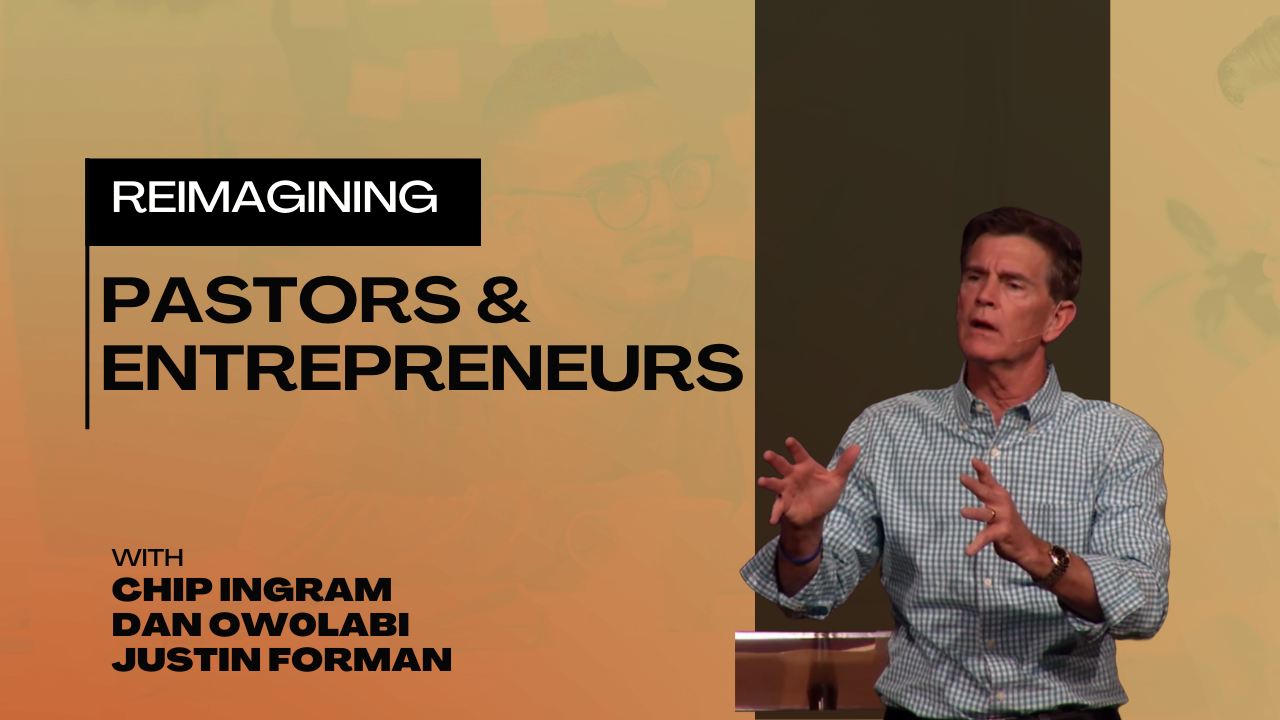
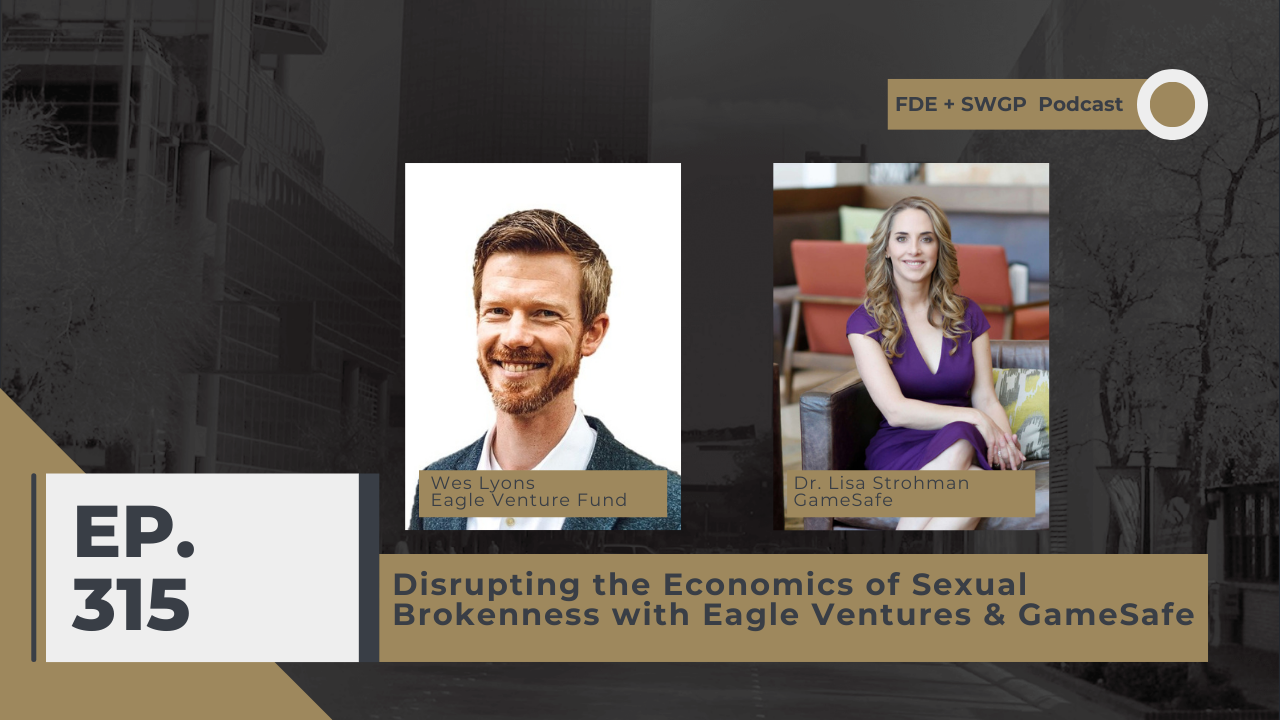



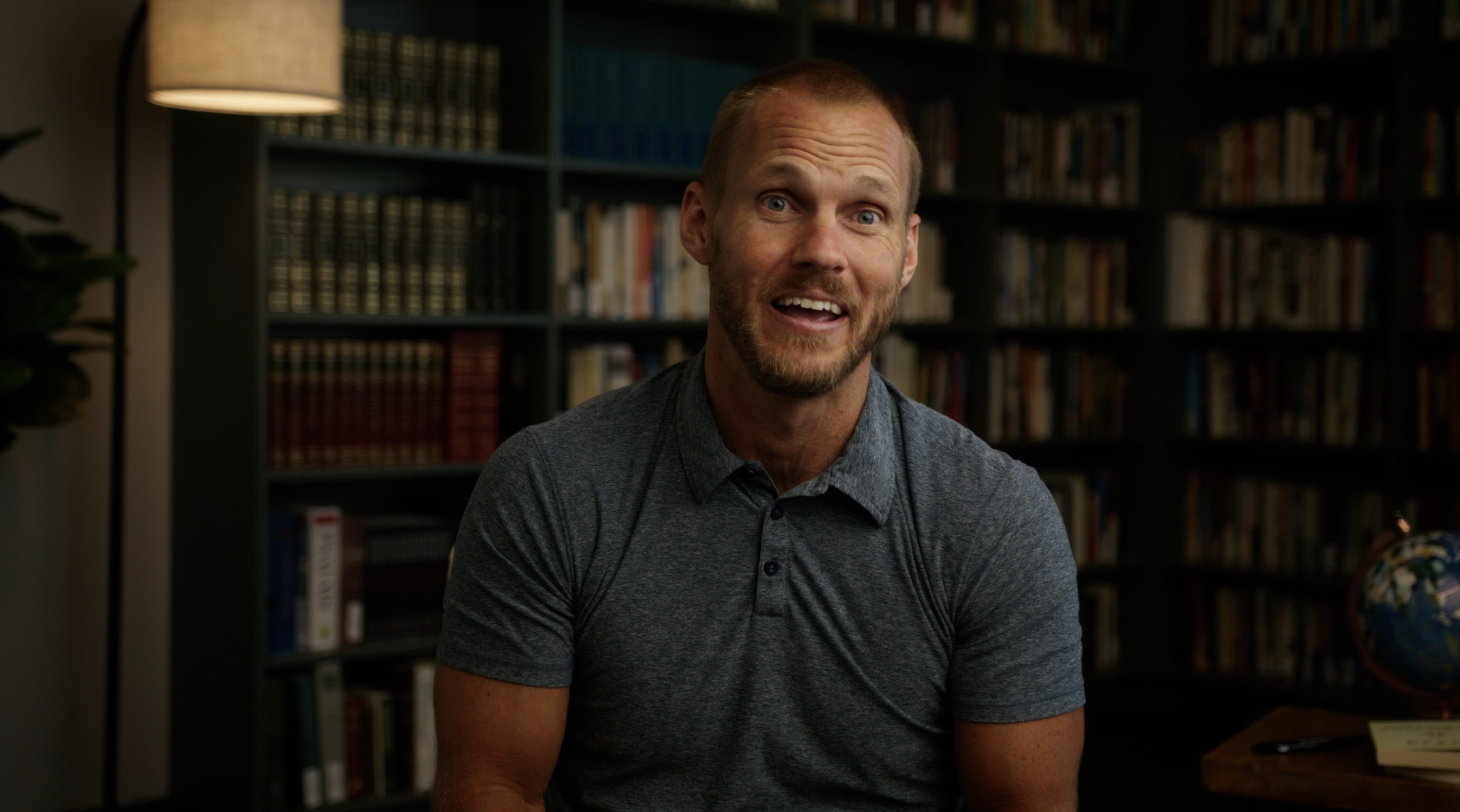
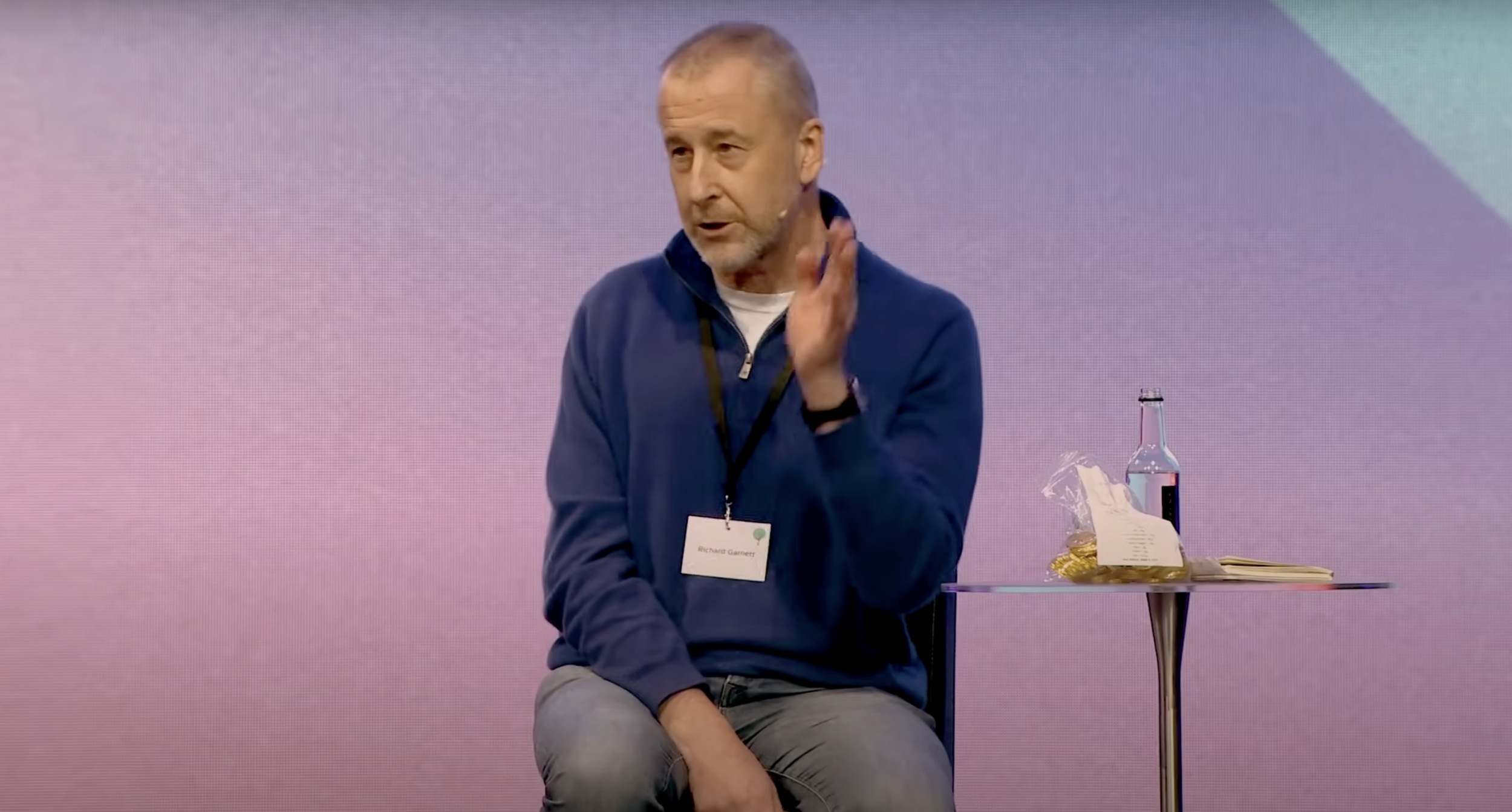

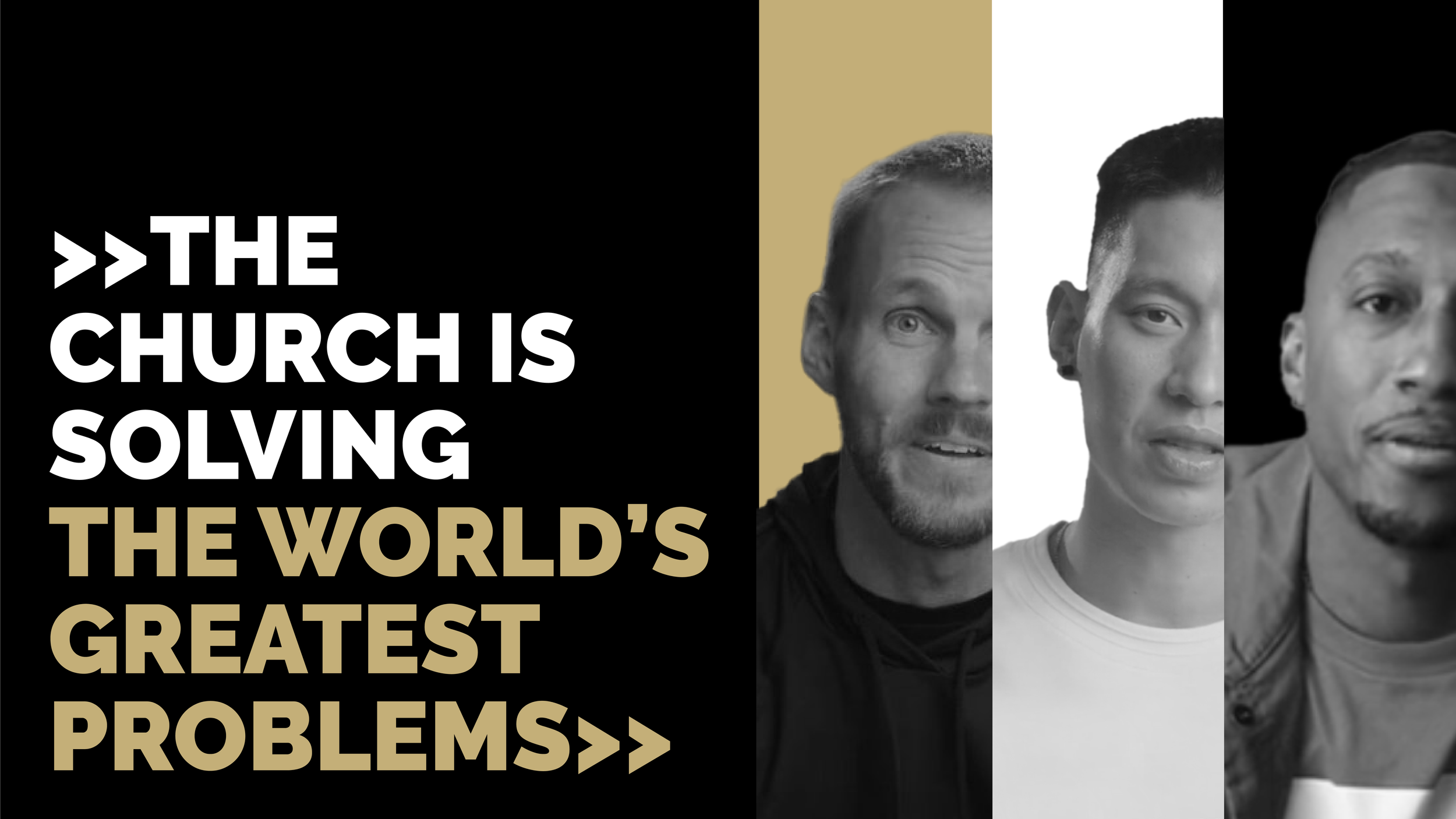

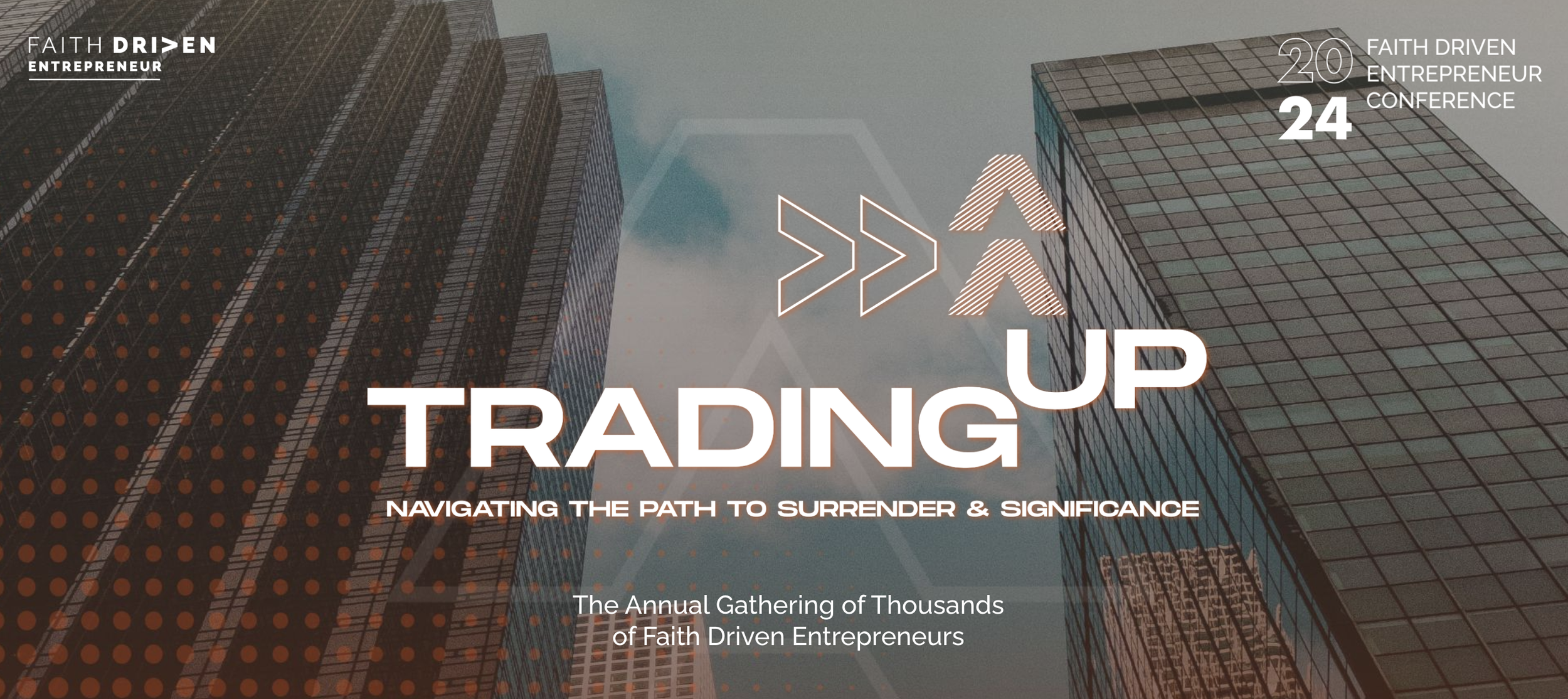
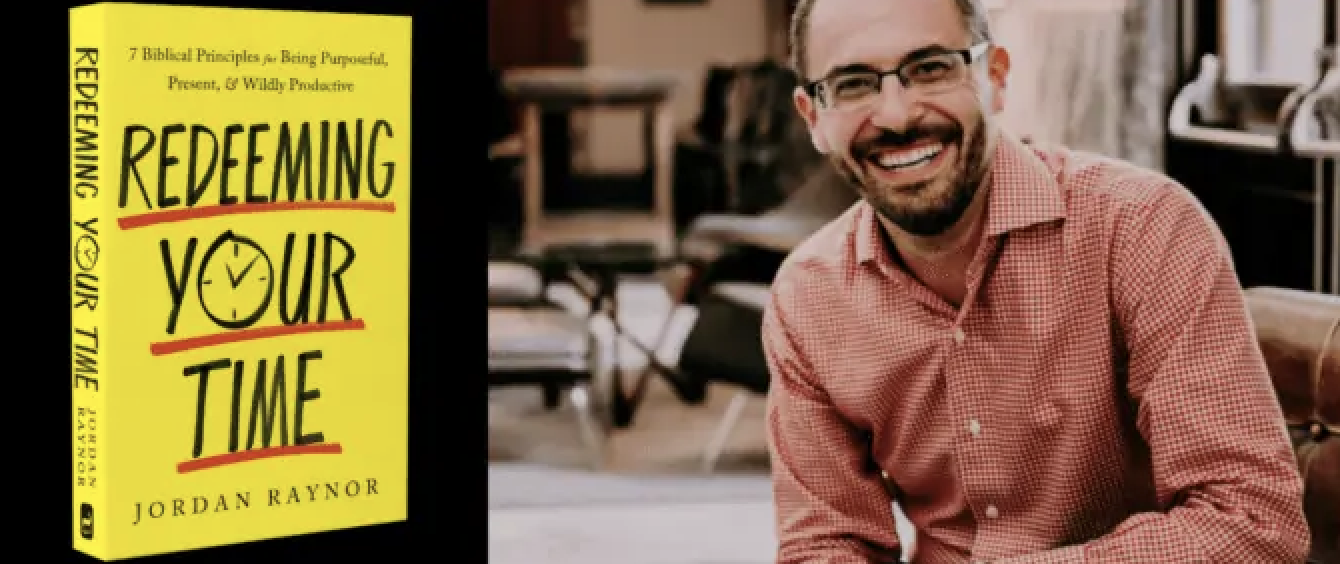
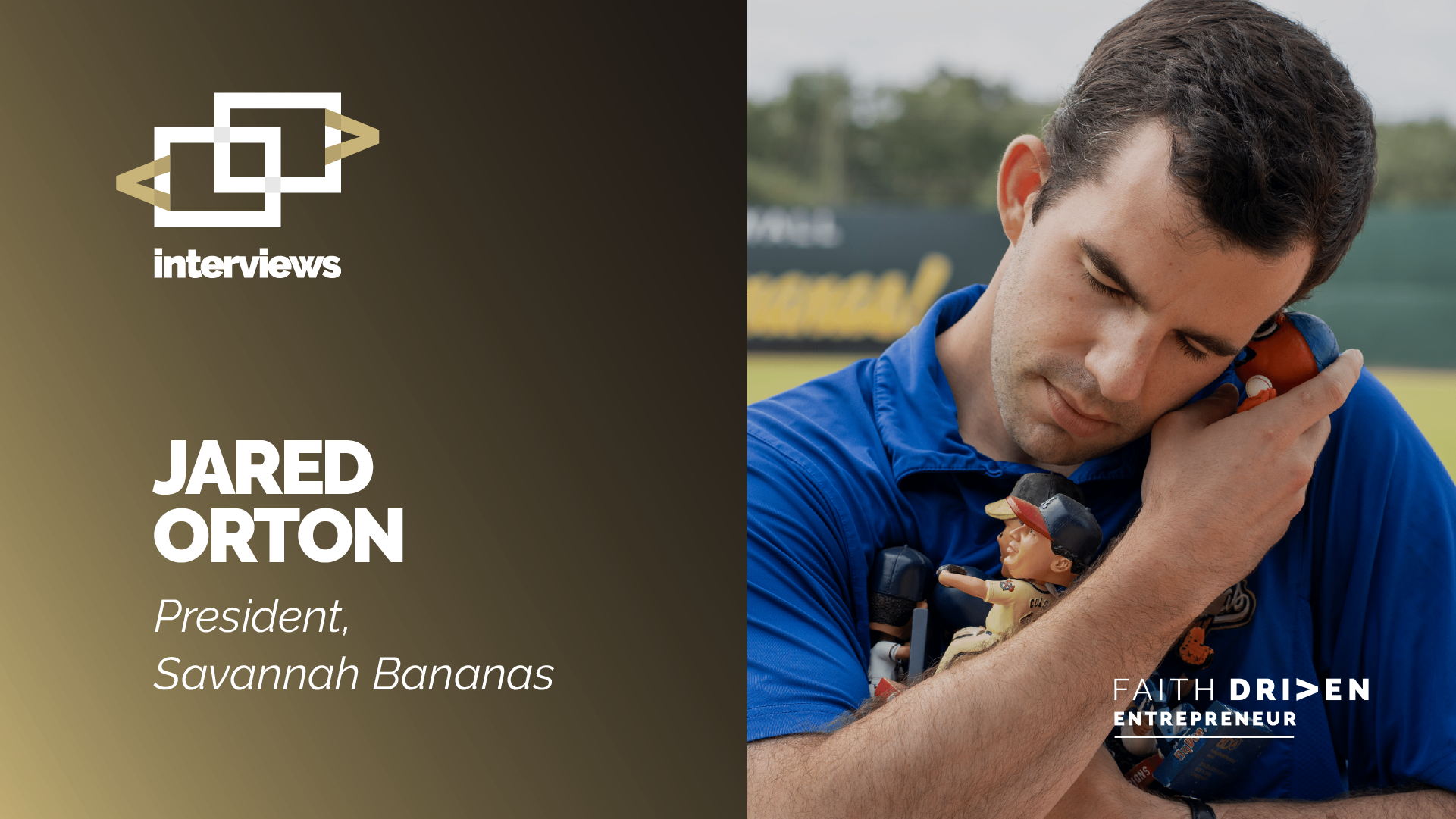
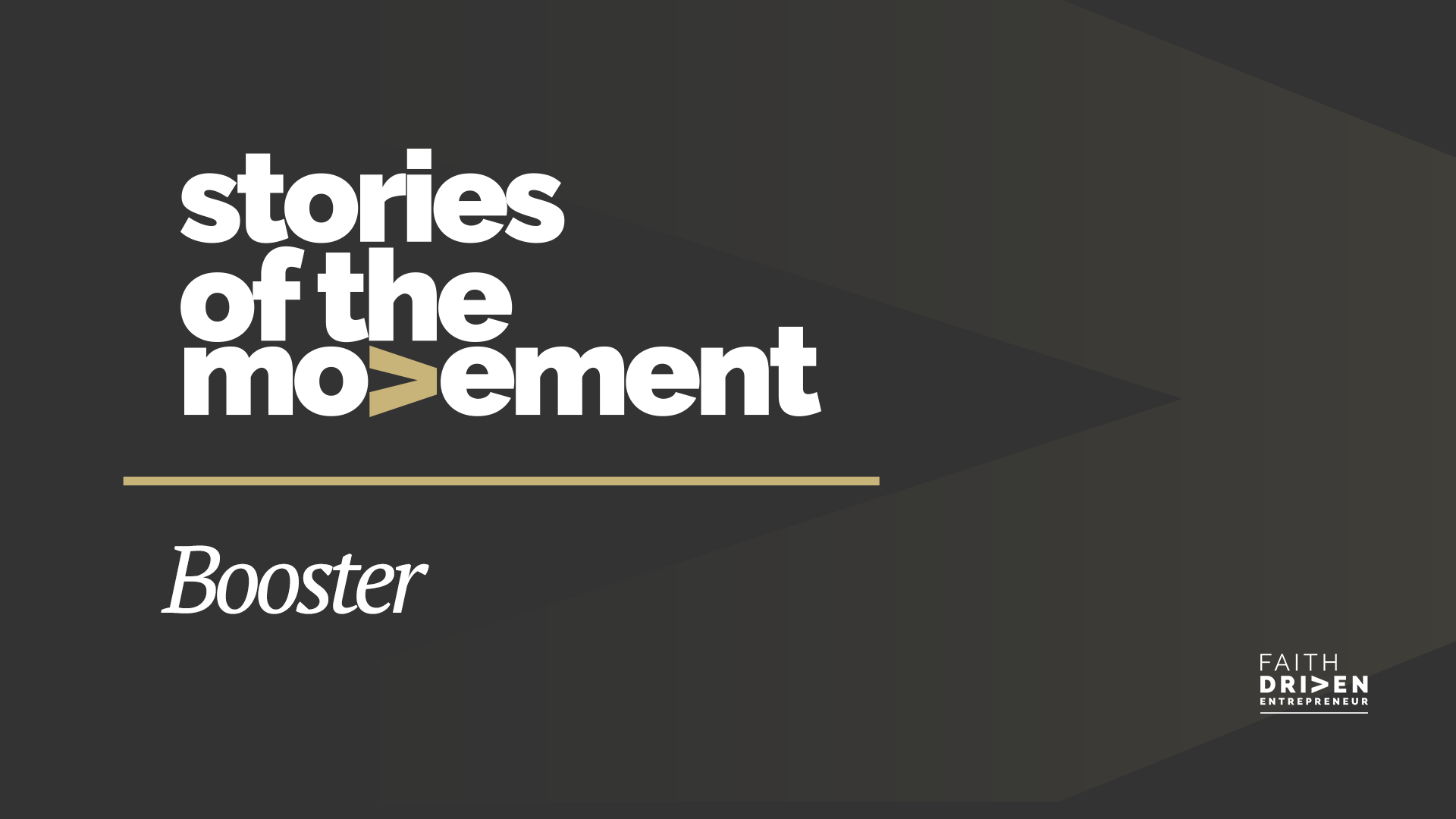
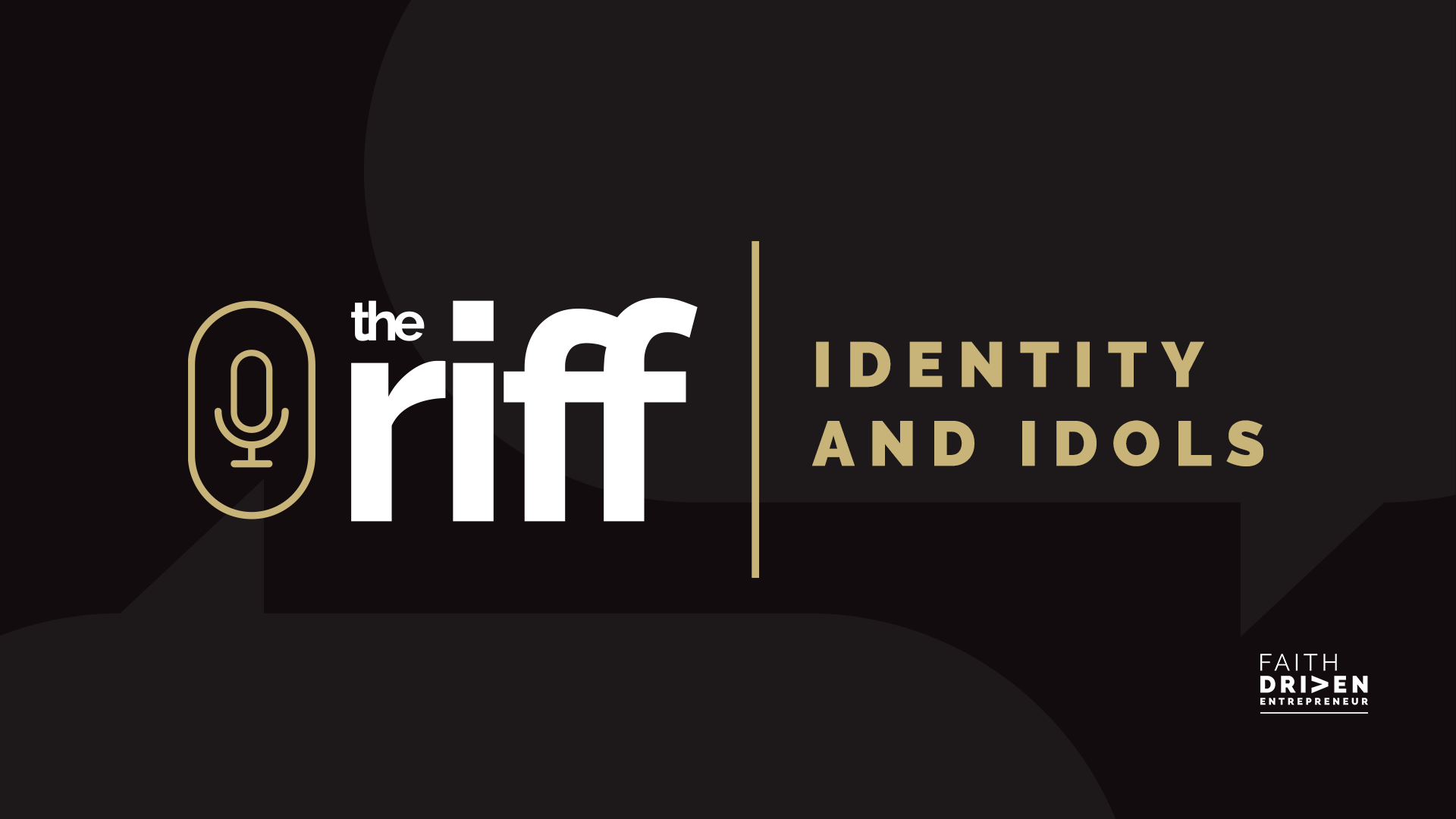


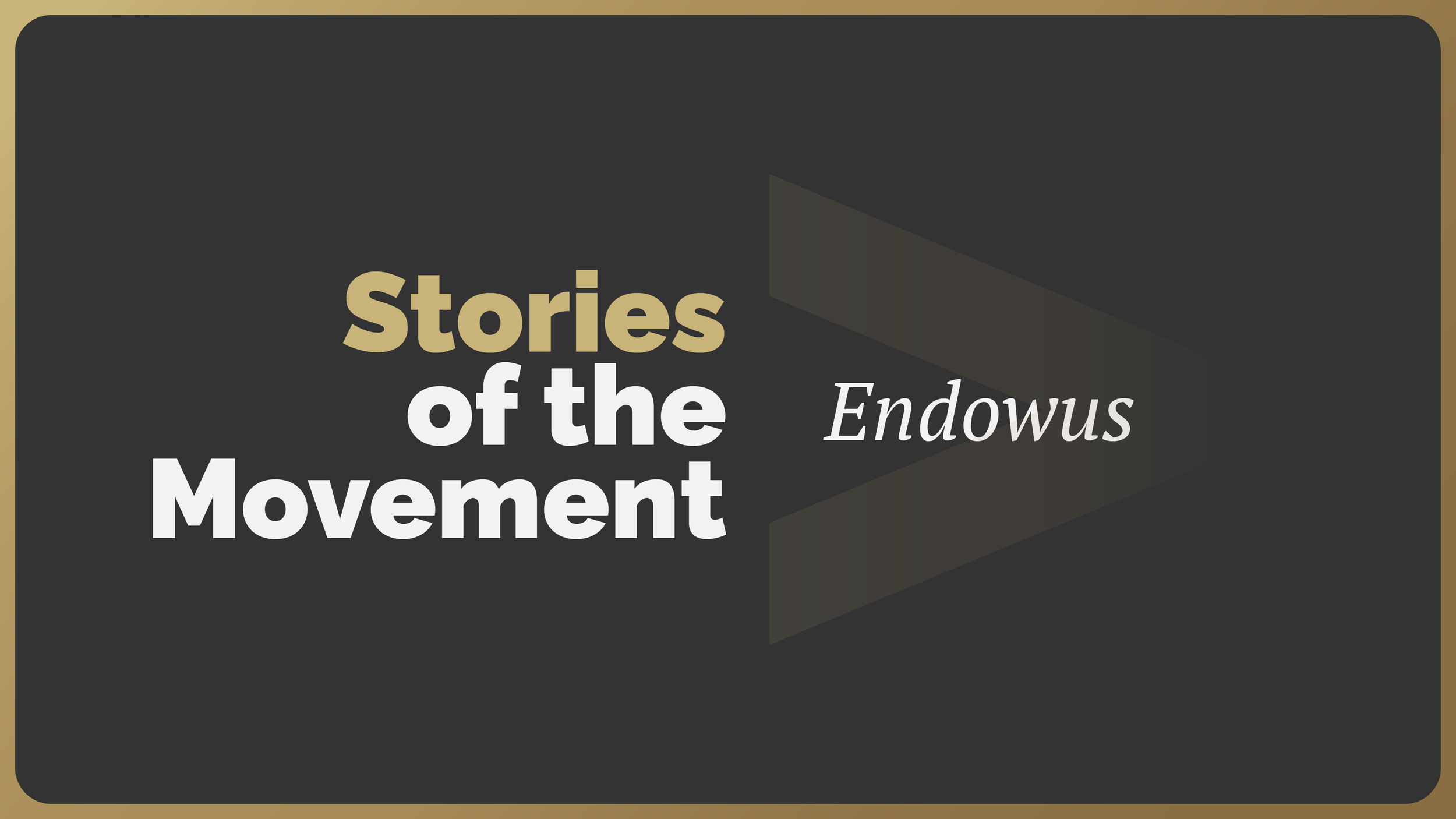

Follow the podcast